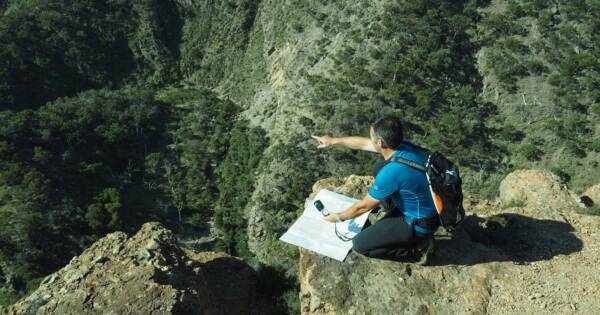As an outdoor enthusiast, hiker, or adventurer, a compass is an essential tool to have in your pack. Whether you’re exploring a dense forest, summiting a mountain, or heading out on a backcountry adventure, a compass can help you stay on track and navigate your way through unfamiliar territory. But with so many options available in the market, what should you look for in a good compass?
The art of choosing the right compass
There’s no real art but there are a lot of things to consider and it’s important to know what to look for. Let’s explore the key features that make a compass reliable and trustworthy.
1. Accuracy
The primary function of a compass is to provide accurate directional information. Look for a compass with a clear and easy-to-read dial that displays cardinal directions (north, south, east, and west) and degrees. The compass should have precise markings and graduations to allow for accurate readings. It should also be free from any magnetic interference, such as from nearby metal objects, to ensure accurate readings. Iv’e used compasses that have a clear and easy-to-read dial then the manufacturer when and placed the logo right over the top, making it difficult to see the markings and map below. It’s important to look for intricate details like this before making a purchase.
2. Quality of construction
A good compass should be well-constructed and made from durable materials that can withstand the rigors of outdoor use. Look for a compass with a sturdy and rugged design that can handle rough handling, exposure to the elements, and other environmental conditions. A compass with a metal casing, scratch-resistant lens, and a stable needle is generally more durable and reliable.
3. Declination adjustment
Declination is the difference between true north and magnetic north, and it varies depending on your location. A good compass should have a declination adjustment feature that allows you to make necessary corrections to align your compass with true north. This is crucial for accurate navigation and prevents errors in your bearings.
4. Size and weight
The size and weight of a compass are important factors to consider, especially if you plan to carry it with you on your outdoor adventures. Look for a compass that is compact and lightweight, making it easy to carry in your pocket, backpack, or on your wrist. However, ensure that the compass is not too small or too light, as this can affect its stability and accuracy.
5. Luminescent markings
Outdoor adventures often involve low-light conditions, such as early morning or late evening hikes. A compass with luminescent markings on the dial and/or needle can be extremely useful in such situations, allowing you to read your compass even in the dark. Look for a compass with high-quality luminescent markings that have a long-lasting glow.
6. Additional Features
Some compasses come with additional features that can be handy in the field. For example, a sighting mirror can help you take more accurate bearings, while a clinometer can assist in measuring slopes or vertical angles. However, these features may add complexity to the compass, so consider your needs and the level of expertise required to use them effectively.
7. Price
Compasses come in a wide range of prices, and while it’s important to invest in a quality compass, it’s also essential to consider your budget. Set a budget that aligns with your needs and expectations, and choose a compass that provides good value for money in terms of its features, durability, and accuracy.
8. Reputation
There are several reputable compass brands that are known for producing high-quality compasses for outdoor use. Some well-known brands include Silva, Suunto, Brunton, Garmin, and Gerber, among others. These brands have a long history of producing reliable and accurate compasses that are trusted by outdoor enthusiasts and professionals alike.
When choosing a compass, it’s important to research and compare different brands based on their reputation, customer reviews, and product specifications. Look for compasses that have a proven track record of accuracy, durability, and functionality in outdoor environments. Reading reviews from other users and outdoor experts can provide valuable insights into the performance and reliability of a particular brand or model.
It’s also worth considering the specific needs of your outdoor activities. For example, if you’re into hiking or mountaineering, you may need a compass with advanced features like a sighting mirror or a clinometer. On the other hand, if you’re a casual camper or backpacker, a simpler compass with basic features may be sufficient. Consider your skill level, navigation requirements, and budget when selecting a compass that meets your specific needs.
Ultimately, the “best” compass brand may vary depending on individual preferences and requirements. It’s important to choose a compass that fits your needs, provides accurate readings, is durable, and is within your budget. Investing in a reliable compass from a reputable brand can greatly enhance your outdoor navigation experience and help you stay on track during your adventures.
A good compass is an essential tool
A good compass is an essential tool for outdoor navigation, and there are several factors to consider when choosing the right one. Look for a compass that is accurate, well-constructed, has a declination adjustment, is of the right size and weight, has luminescent markings, and may include additional features based on your needs. Also, consider your budget when making your decision. With the right compass in hand, you can confidently navigate your way through the great outdoors and make your adventures safer and more enjoyable.






Essential. Way too easy to depend on phone GPS, and way too easy to lose reception and…wait, didn’t we come that way already? Is the ridge that way or that way? Um, where the hell are we?
The article ‘What to look for in a good compass’ provides a good basis when considering the purchase of a compass. Navigation is a skill requiring ongoing practice. Anyone considering hiking in the great outdoors, should be prepared to acquire a good compass and appropriate maps of the area they intend to hike in. However, prior to embarking on the hike they should practice the use of navigating, using only maps and compass, without the assistance of GPS devices. Reading about, or attending courses on navigation can only get your understanding so far. Confidence in navigating can only be gained through putting the knowledge into practice.
Could not agree more Alan.